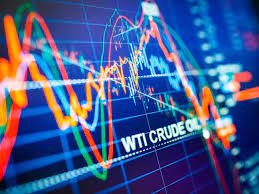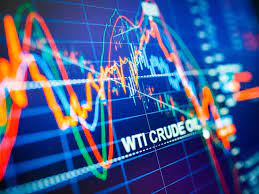
After Russian President Vladimir Putin launched a 'special military operation' in the eastern region of Ukraine on Thursday early morning, the price of Brent crude went past $100 a barrel, which is the highest for it in the last seven years. Later in the day, oil prices began to fall slightly.
Several news organizations, including the BBC and CNN, reported hearing multiple explosions in Ukraine's capital, Kyiv.
Oil prices rose about 3 per cent in response to the news of the Russian military action in Ukraine but lost part of the gains later. Following the announcement of Russian military action, Brent oil prices rose 2.75 per cent to $99.50 per barrel.
At the same time, oil futures in the United States rose 3.02 per cent to $94.88 per barrel. Natural gas prices climbed by 3.33 per cent.
At the time of writing, the trading price of spot gold, which is traditionally regarded as a safe haven asset, was $1,927.67, up 1.05 per cent from the previous day.
Rising oil prices benefit producers while raising prices for everyone else. As a result, economic activity is dampened as individuals and businesses alike cut back in reaction to rising prices.
In the United States, gasoline prices have climbed to more than $3.50 per gallon, the highest level since 2014. If oil prices continue to climb, gasoline prices will almost certainly rise as well.
Lower-income households would be hit the hardest since gasoline consumes a larger amount of their household budget.
The idea has evidently frightened the Biden administration.
"I want to limit the pain that the American people are feeling at the pump," Biden said in a speech on Tuesday. "This is critical."
Meanwhile, increased natural gas prices may result in higher energy and home heating bills. Increasing transportation, power, and heating costs would all contribute to inflation in the United States, which is already at its highest rate in 40 years, although the amount of the impact is contested.
Price increases would be felt internationally, but a drop in Russian exports would be felt far more sharply in Europe than in the US, given Europe's reliance on Russian natural gas.
Nonetheless, the European Union has threatened Russia with severe repercussions if it invades.
In an announcement by the German Chancellor Olaf Scholz on Tuesday, Germany said that the Nord Stream 2 pipeline, which has yet to be completed but is expected to transport natural gas from Russia to Europe, "cannot go online."
While this does not directly prevent Russia from making oil and gas shipments, it does imply that at least a section of European politicians is willing to take a potentially significant hit economically and otherwise for diplomatic reasons.
The US and other countries have been looking into other sources of natural gas and oil to substitute for a Russian deficit, but due to the tight global market, it is uncertain how much will be made available to Europe.
(Source:www.news18.com)
Several news organizations, including the BBC and CNN, reported hearing multiple explosions in Ukraine's capital, Kyiv.
Oil prices rose about 3 per cent in response to the news of the Russian military action in Ukraine but lost part of the gains later. Following the announcement of Russian military action, Brent oil prices rose 2.75 per cent to $99.50 per barrel.
At the same time, oil futures in the United States rose 3.02 per cent to $94.88 per barrel. Natural gas prices climbed by 3.33 per cent.
At the time of writing, the trading price of spot gold, which is traditionally regarded as a safe haven asset, was $1,927.67, up 1.05 per cent from the previous day.
Rising oil prices benefit producers while raising prices for everyone else. As a result, economic activity is dampened as individuals and businesses alike cut back in reaction to rising prices.
In the United States, gasoline prices have climbed to more than $3.50 per gallon, the highest level since 2014. If oil prices continue to climb, gasoline prices will almost certainly rise as well.
Lower-income households would be hit the hardest since gasoline consumes a larger amount of their household budget.
The idea has evidently frightened the Biden administration.
"I want to limit the pain that the American people are feeling at the pump," Biden said in a speech on Tuesday. "This is critical."
Meanwhile, increased natural gas prices may result in higher energy and home heating bills. Increasing transportation, power, and heating costs would all contribute to inflation in the United States, which is already at its highest rate in 40 years, although the amount of the impact is contested.
Price increases would be felt internationally, but a drop in Russian exports would be felt far more sharply in Europe than in the US, given Europe's reliance on Russian natural gas.
Nonetheless, the European Union has threatened Russia with severe repercussions if it invades.
In an announcement by the German Chancellor Olaf Scholz on Tuesday, Germany said that the Nord Stream 2 pipeline, which has yet to be completed but is expected to transport natural gas from Russia to Europe, "cannot go online."
While this does not directly prevent Russia from making oil and gas shipments, it does imply that at least a section of European politicians is willing to take a potentially significant hit economically and otherwise for diplomatic reasons.
The US and other countries have been looking into other sources of natural gas and oil to substitute for a Russian deficit, but due to the tight global market, it is uncertain how much will be made available to Europe.
(Source:www.news18.com)





